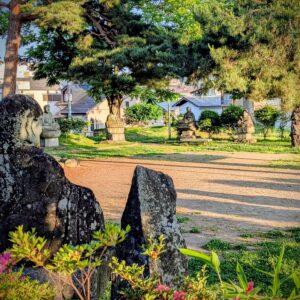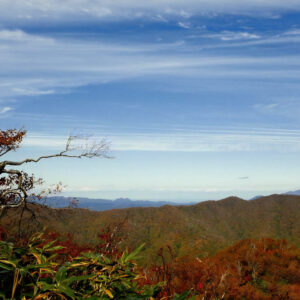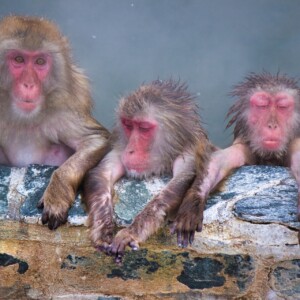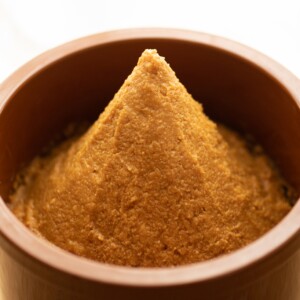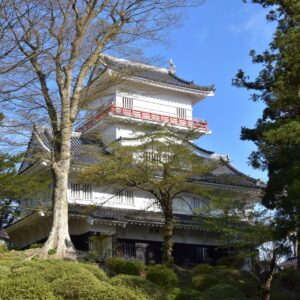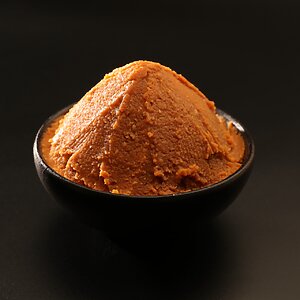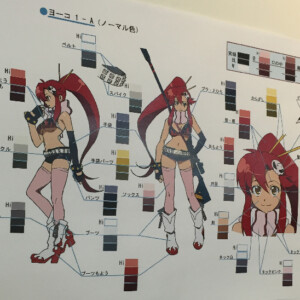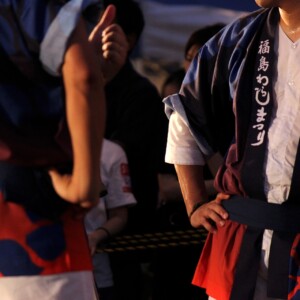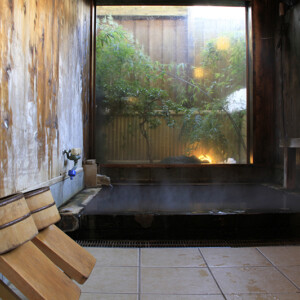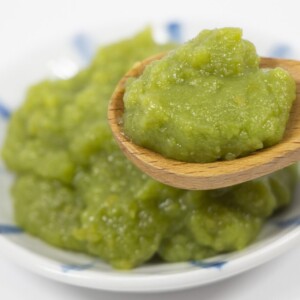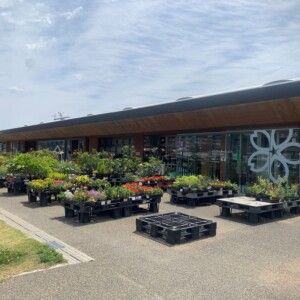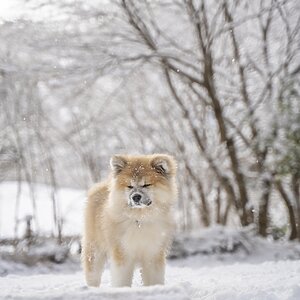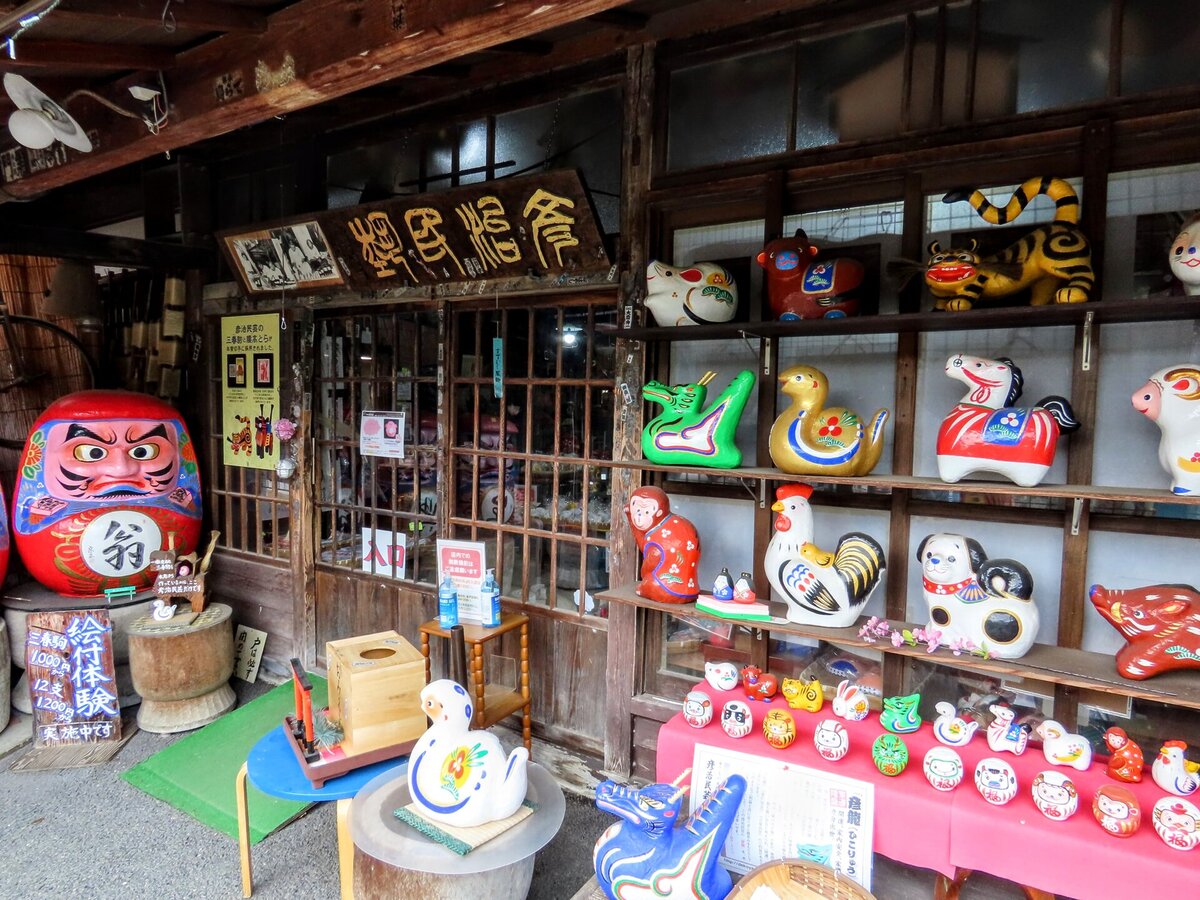
Takashiba Deco Yashiki is a village of local toys that remains within the territory of the former Miharu domain [Koriyama City, Fukushima Prefecture]
table of contents
Did you know that there is a craftsman's settlement called "Takashiba Deco Yashiki" near the prefectural border with Miharu Town, about 25 minutes by car from Koriyama Station
It was also featured in the 9th episode of season 9 of the popular TV drama "Solitary Gourmet" and became a hot topic, but it is a village known as the "village of local toys"
What is Takashiba Deco House?
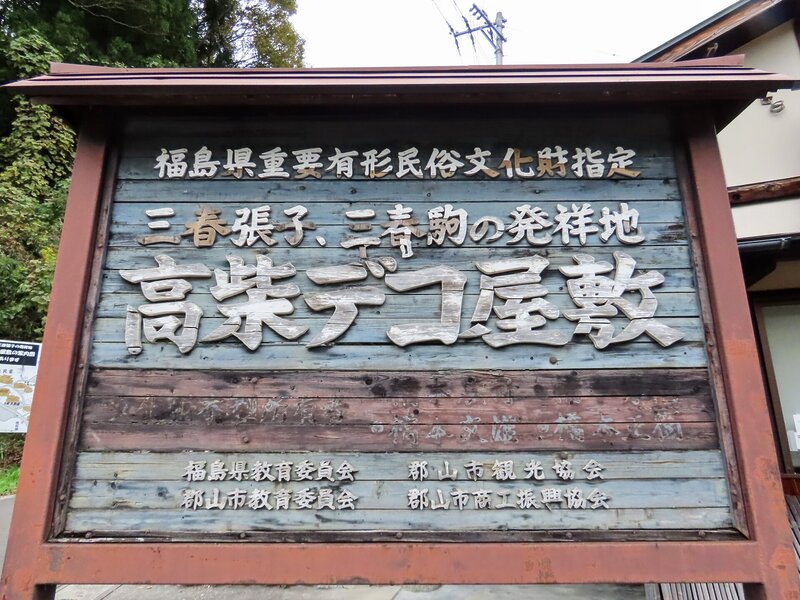
Takashiba Deco House is said to have begun about 300 years ago, during the Genroku period (1688-1704) of the Edo period, when a man who had come from Kamigata (the Kyoto-Osaka region) settled in this area, which was then called Takashiba Village, and began making papier-mâché dolls to make a living
After that, the number of craftsmen gradually increased, and "Takashiba Hariko" "Takashiba Rocking Horse" were produced.
The history of this craft came to a halt in the Meiji era, but with the end of the Pacific War in the Showa era, several workshops were revived, and today four workshops continue to make local toys
"Takashiba Hariko" and "Takashiba Rokkuma" are "Miharu Hariko" and "Miharu Goma" . When the workshop was revived in the Showa era, the name "Miharu" came to be added to the name because this area was the territory of the Miharu domain during the Edo period.
What does Deco mean in Deco Yashiki?
The "deco" in Deco Yashiki is a derivative of the word "deku," which refers to a wooden carved doll. As this area was a settlement of craftsmen who made wooden dolls, it is said that the name "Takashiba Village Puppet Yashiki" came to be known as "Takashiba Deco Yashiki."
Four workshops in the Deco Mansion
Takashiba to four workshops: Hashimoto Koji Mingei and Hikoji Mingei which were revived immediately after the war, Honke Daikoku-ya were revived about 20 years later
Hiroji Hashimoto Folk Crafts
This workshop was one of the first to be revived after the war, and is located just one house away from the center of the village. It mainly produces papier-mâché figures
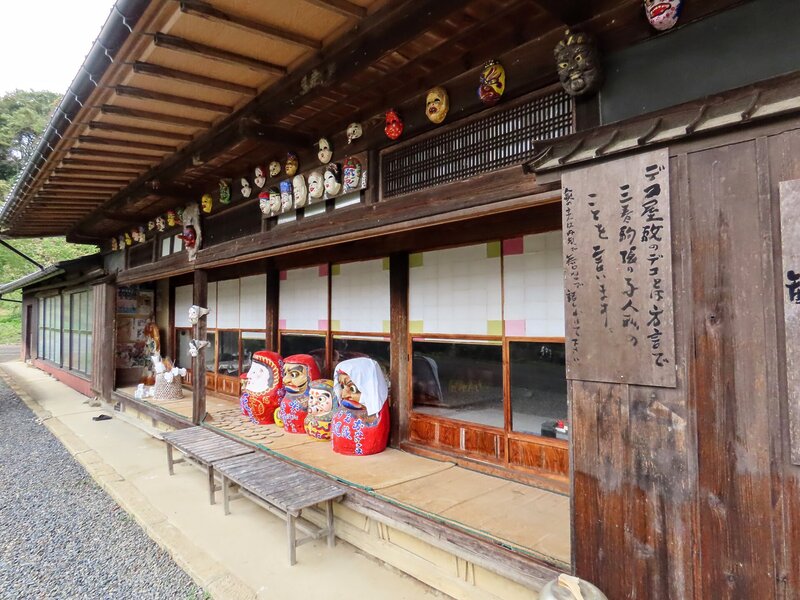
In addition to items based on Kabuki and dance, Hina dolls, and May dolls, there are also papier-mâché dolls and masks of the zodiac animals, and if you're lucky, you can actually see the process of making papier-mâché. Incidentally, the head of the family is also famous as a master of the Hyottoko dance
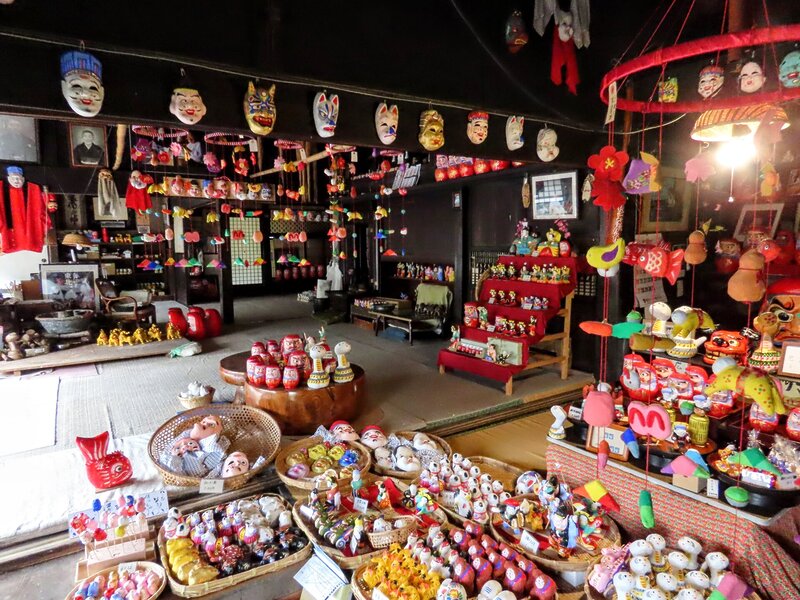
The Deco Yashiki Museum on the premises , where you can see wooden doll molds that have been designated as important cultural properties of Fukushima Prefecture.
Hashimoto Koji Folk Crafts <Information>
- Name: Hashimoto Koji Folk Crafts
- Address: 41 Takashiba Fukuuchi, Nishida-cho, Koriyama City, Fukushima Prefecture, 963-0902
- Phone number: 024-971-3900
- Official URL: https://hirojimingei.jimdofree.com/
Google Map
Hikoji Folk Crafts
Along with Hashimoto Koji Folk Crafts, this workshop was one of the first to be revived after the war, and the interior is home to a large number of antique lanterns, clocks, and cameras on display, giving it a unique atmosphere that is different from other workshops
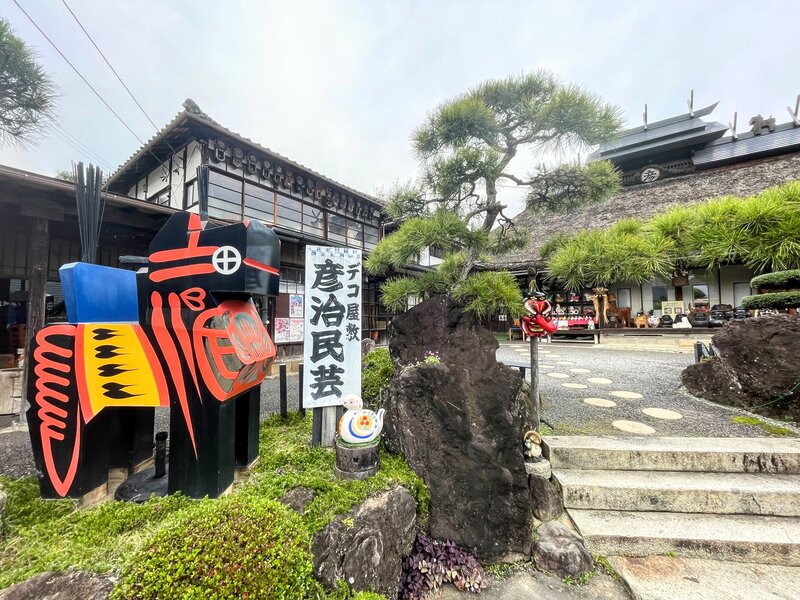
Currently, the only workshop in Takashiba Deco Yashiki that still produces Miharu-goma from wood carving , and the originator of the creation of the twelve zodiac animals made . In addition, various other folk crafts such as masks and daruma dolls are sold here.
Hikoji Folk Crafts <Information>
- Name: Hikoji Folk Art
- Address: 80-1 Tateno, Takashiba, Nishida-cho, Koriyama City, Fukushima Prefecture, 963-0902
- Phone number: 024-972-2412
- Official URL: http://dekoyashiki-hikojimingei.co.jp/index.html
Google Map
Honke Ebisu-ya
This workshop mainly produces papier-mâché masks, daruma dolls, and papier-mâché dolls of the Chinese zodiac
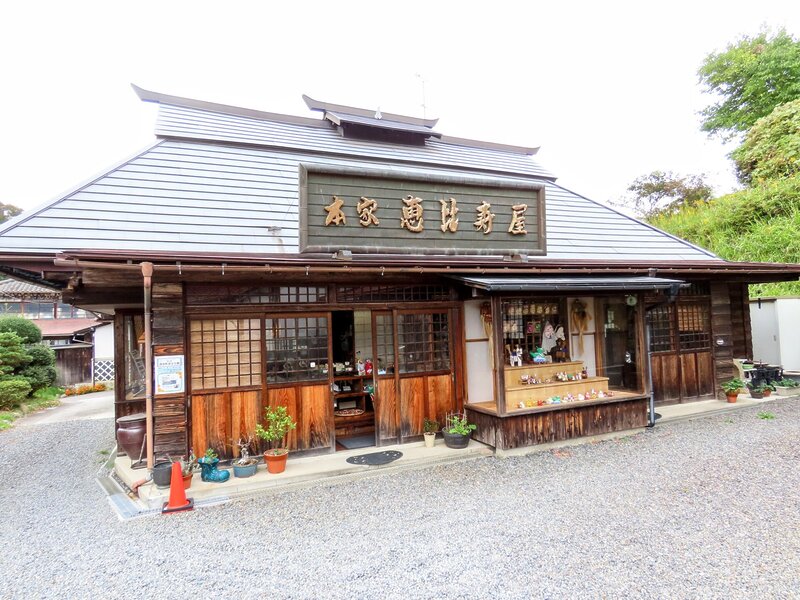
The well-proportioned paper dolls were impressive, and the red Tengu and green Karasu Tengu paper dolls particularly caught my eye
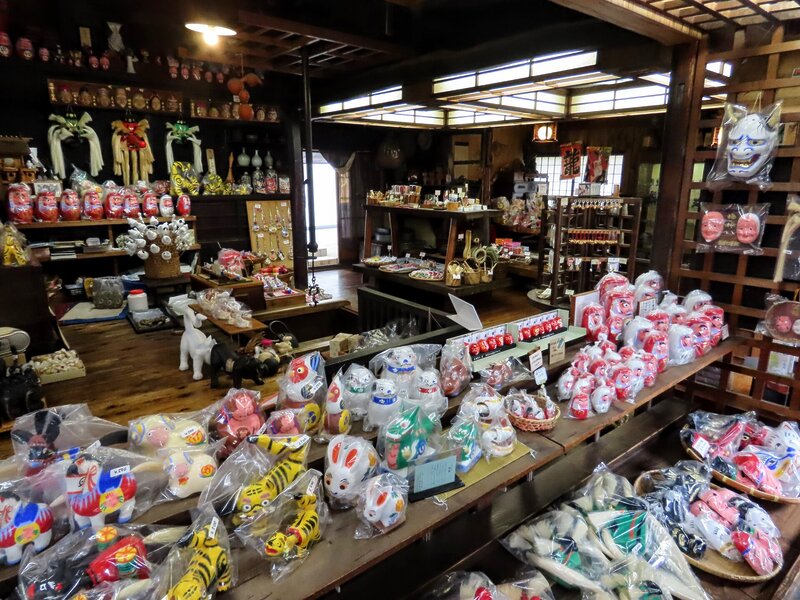
Inside the store, there are displays of dolls and wooden mask molds handed down at Ebisu-ya, which have been designated as important cultural properties of Fukushima Prefecture, and you can freely look around
Honke Ebisu-ya <Information>
- Name: Honke Ebisu-ya
- Address: 161 Tateno, Takashiba, Nishida-cho, Koriyama City, Fukushima Prefecture, 963-0902
- Phone number: 024-972-2204
- Official URL:-
Google Map
Honke Daikokuya
This workshop continues to explore new possibilities for Japanese paper and papier-mâché while preserving the traditions of papier-mâché making
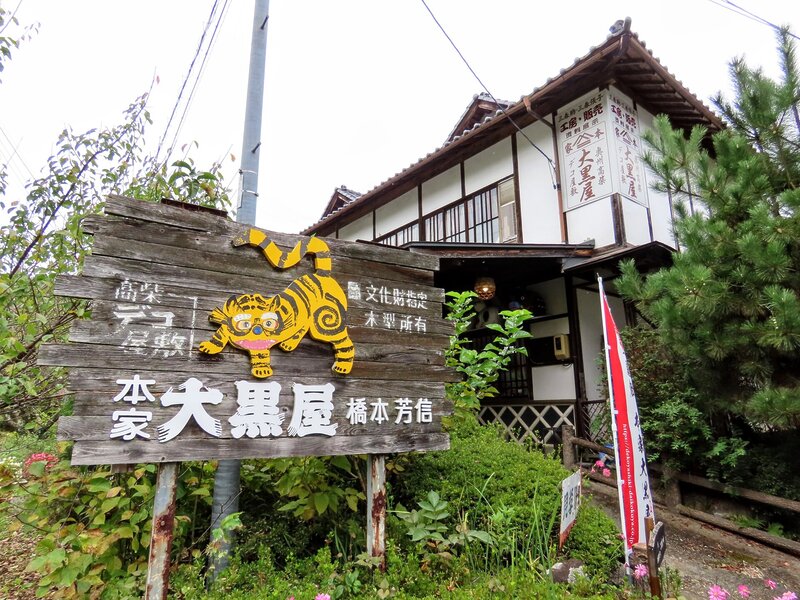
The workshop gave the impression of having many unique creations, including traditional daruma and zodiac papier-mâché dolls with somewhat cute faces and gestures, as well as papier-mâché dolls of rain dolls
Honke Daikokuya <Information>
- Name: Decoyashiki Daikokuya Co., Ltd
- Address: 163 Tateno, Takashiba, Nishida-cho, Koriyama City, Fukushima Prefecture, 963-0902
- Phone number: 024-981-1636
- Official URL: https://dekoyashiki-daikokuya.co.jp/
Google Map
Miharukoma Shrine, a shrine protected by Miharukoma instead of Komainu
There is a shrine called "Miharukoma Shrine" in Takashiba Deco House
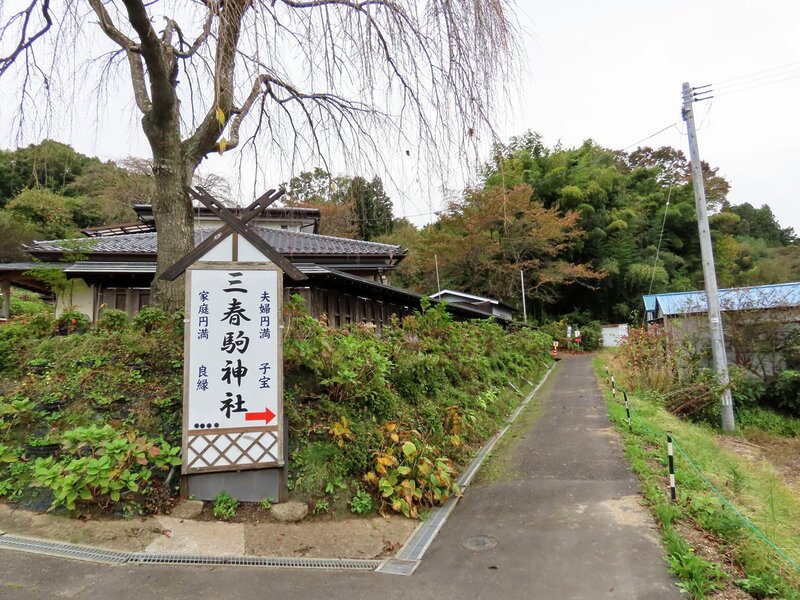
The enshrined deity and auspicious origins are unknown, but the shrine appears to grant blessings for marital harmony, family harmony, good relationships, and fertility
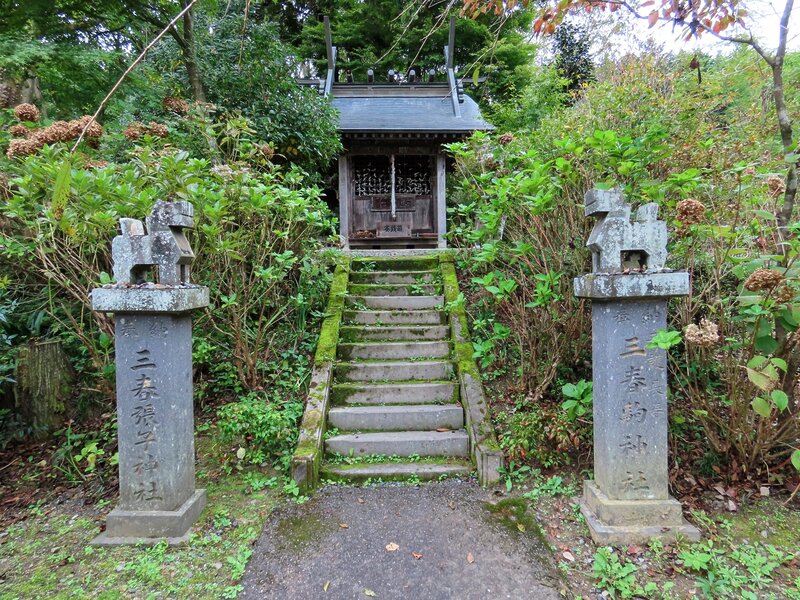
After walking a little way along the approach, you will see a small shrine, but what catches your eye is what is just before it. It is not a guardian dog, but a Miharu Koma . On the left are engraved the words "Miharu Hariko Shrine," and on the right, "Miharu Koma Shrine."
I have seen many different types of Komainu, but this is the first time I have seen one like this. This is the shrine that Miharu Koma protects
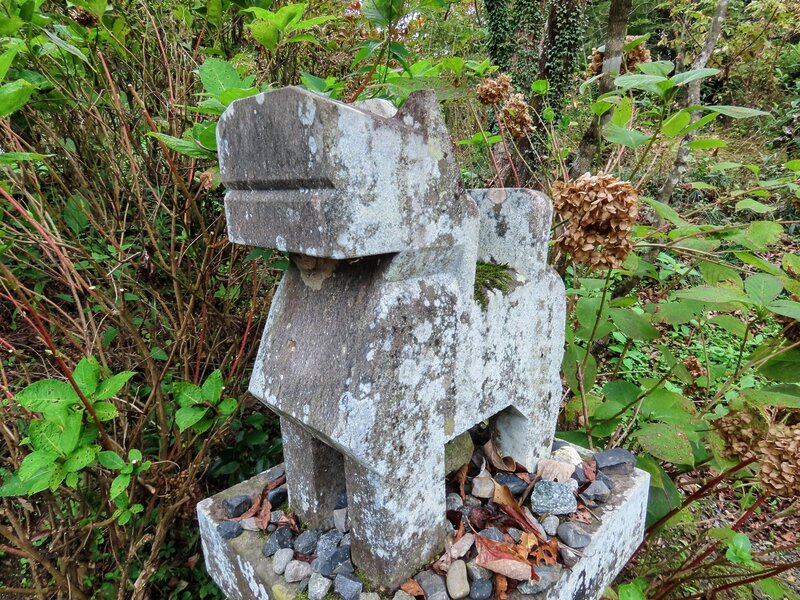
In addition to the benefits it brings, this is a shrine that you should definitely visit if you visit Deco Yashiki, even if just to see the Koma Miharukoma
Miharukoma Shrine <Information>
- Name: Miharukoma Shrine
- Address: 196 Tateno, Takashiba, Nishida-cho, Koriyama City, Fukushima Prefecture, 963-0922
- Phone number: 024-972-2412
- Official URL:-
Google Map
There are many other "hidden Miharu Koma" within the village!
In addition to the Koma Miharukoma of Miharukoma Shrine, there are many other "hidden Miharukoma" at Takashiba Deco Yashiki
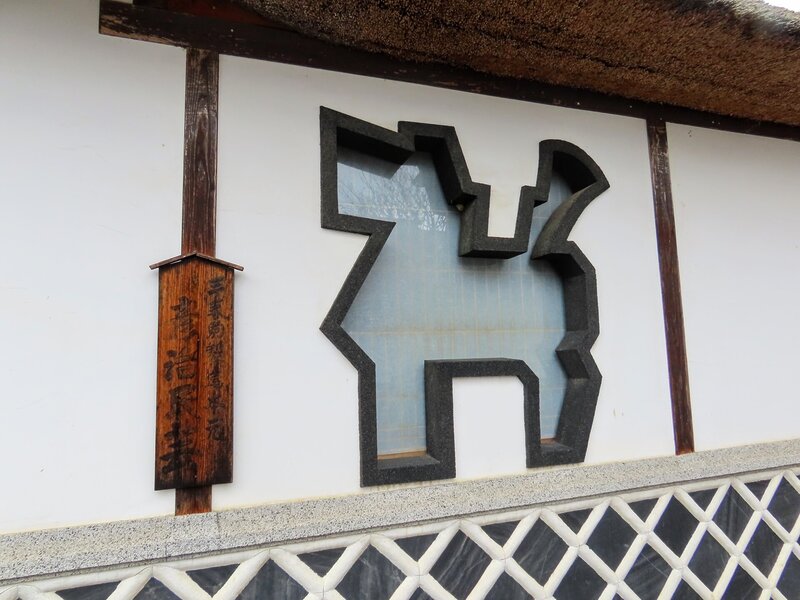
As I walked down the side street of Hikoji Folk Crafts, I happened to look at the wall and saw that the window frames were made of Miharukoma
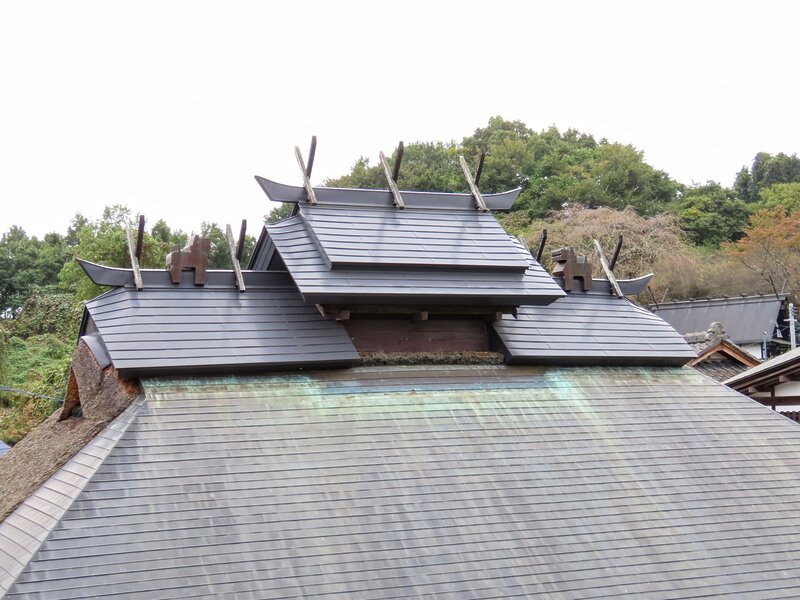
And on the roof too..
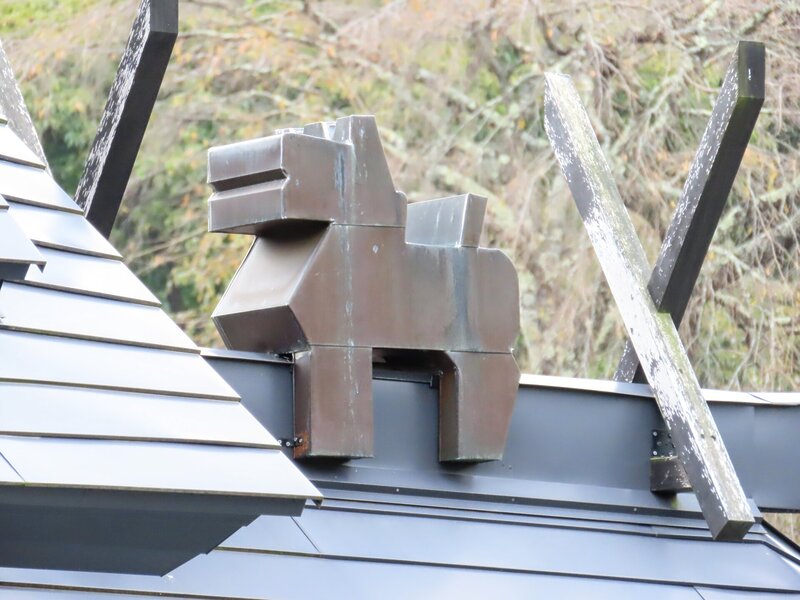
Here is a metallic Miharu Koma
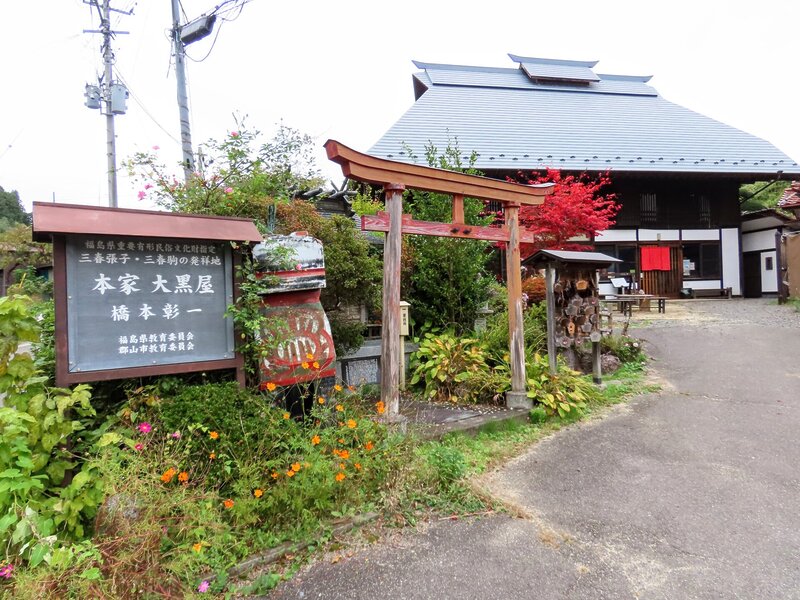
The entrance to Daikokuya. There's a small shrine, and next to it is a huge Miharu Koma!
As the village is known as the "Home of Local Toys," the whole village is filled with a playful spirit. There may be many more, so when you visit, be sure to look for the "Hidden Miharu Koma."
summary
At Takashiba Deco House, you can enjoy unique scenery that can only be seen here, such as Miharu-goma standing on the roadside, papier-mâché dolls and daruma dolls displayed in large numbers on the eaves, and masks of the Seven Lucky Gods and Tengu
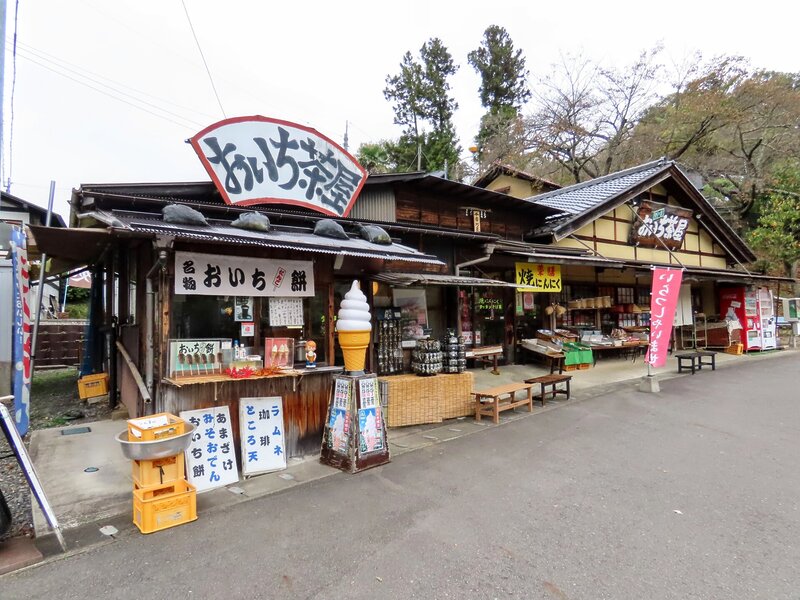
Oichi Chaya , where you can try the famous Oichi Dango Mochi and Dartton Soft Serve Ice Cream, Tenjin Meotozakura , two roughly 500-year-old mountain cherry trees nestled side by side like a married couple, which is only available in spring .
It's not too far from JR Koriyama Station, so if you're visiting Koriyama, why not make the effort to stop by?



![[Koriyama City, Fukushima Prefecture] What is "Takashiba Deco House"? A tourist spot where you can talk to locals! Enjoy shopping, experiences, and learning! [Koriyama City, Fukushima Prefecture] What is "Takashiba Deco House"? A tourist spot where you can talk to locals! Enjoy shopping, experiences, and learning!](https://jp.neft.asia/wp-content/uploads/2024/02/P2022183-150x150.jpg)
![Miharu Koma - One of Japan's three great horses, a local toy that embodies the legend of Sakanoue no Tamuramaro [Koriyama City, Fukushima Prefecture] Miharukoma](https://jp.neft.asia/wp-content/uploads/2024/11/PXL_20241105_083858350-EDIT-150x150.jpg)
![Spreading the appeal of fruit! Introducing Fukushima Ouse Winery, which works hand in hand with local farmers [Koriyama City, Fukushima Prefecture] rinmon221151346_TP_V](https://jp.neft.asia/wp-content/uploads/2025/12/rinmon221151346_TP_V-150x150.jpg)
![[Fukushima Prefecture] The Legend of Princess Hagi: A Legend Remaining in the Popular Hot Springs Resort of Bandai Atami The Legend of Princess Hagi](https://jp.neft.asia/wp-content/uploads/2022/03/f545c0e0eac88556682361aab93aadfd-1-150x150.jpg)
![[Koriyama City, Fukushima Prefecture] Aiming to become a city in love with carp | Koriyama City promotes the local flavor of "carp cuisine" 4237561_m](https://jp.neft.asia/wp-content/uploads/2022/03/4237561_m-150x150.jpg)

![[Koriyama City, Fukushima Prefecture] What is Lucky Park, located in Kaiseiyama Park, a famous cherry blossom spot? rakki-kouenn](https://jp.neft.asia/wp-content/uploads/2023/03/rakki-kouenn-150x150.jpg)
![What is Kashiwaya's Thin-Skinned Manju, one of Japan's Three Greatest Manju, and the Morning Tea Ceremony? [Koriyama City, Fukushima Prefecture] Thin-skinned manju](https://jp.neft.asia/wp-content/uploads/2023/11/2460339_m-1-150x150.jpg)
